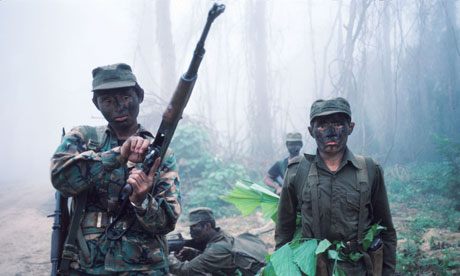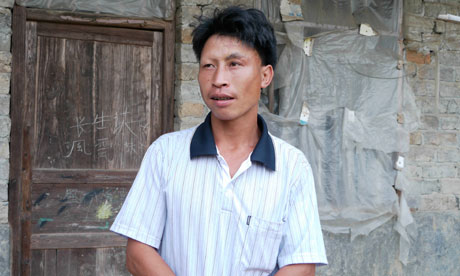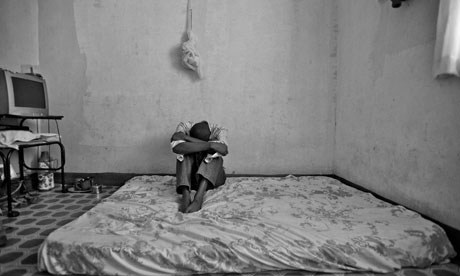 |
| (Chris Hondros/Getty Images) |
By Ellen Knickmeyer
Foreign Policy, October 26, 2011
"Before, I was not even daring to look at girls as wife material, because I knew I could not afford" to get married, say Faqiar now. These days, though, Faqiar wears the mismatched camouflage of Libya's rebels and a dashing bandana on his head, pirate-style. He carries a gun. He is a veteran of battles for Libyans' freedom from Qaddafi's regime -- and it's the women who are talking to him. 'Girls around the area come up to you and say, "Thank you! You made us proud, you made us happy,"' Faqiar told me one night recently. He spoke on the sidelines of a camel and couscous feast that the people in this Tripoli suburb threw for several thousand young rebels, after slaughtering 10 camels. From a specially raised dais, speakers praised the young rebel fighters late into the evening. Hundreds of excited young women and girls in head scarves mingled near rifle-toting young men, a novelty in this conservative country that was overwhelming to members of both genders in the crowd that night. 'It's like a wedding!' Faqiar exclaimed, shaking his head in surprise. Relations between Libyan men and women -- deeply distorted by the eccentric Libyan leader's refusal to provide normal opportunities for Libya's young people -- have changed '100 percent' in the days since Qaddafi fell, the young rebel said. His comrades listening around him voiced agreement. 'Thank God,' 'Faqiar added. Nearby, young women -- a group of cousins and neighbors, clustered together, in long skirts and shirts and head coverings -- said the same, and laughed about taking their pick of a husband from among the rebels when the war was done. Before the revolution, young men her age 'were just lazing around in the streets, no future. I didn't care about them at all,' said Esra'a el-Gadi, 20. 'Now I look at them in a totally new light -- they stood up against Qaddafi. It's something.' 'We saw them as lost youth, unemployed," Rahana el-Gadi, 19, said of men of her generation. "Now we were surprised, so surprised to see what they're capable of,' she added. 'We dream of the day they come back, and we welcome them.' Jokes passed by cell phone text messages across Libya confirm the newfound eligibility of the young civilians turned fighters.



